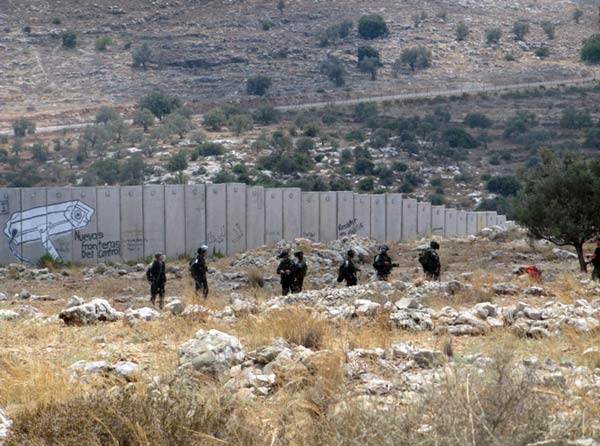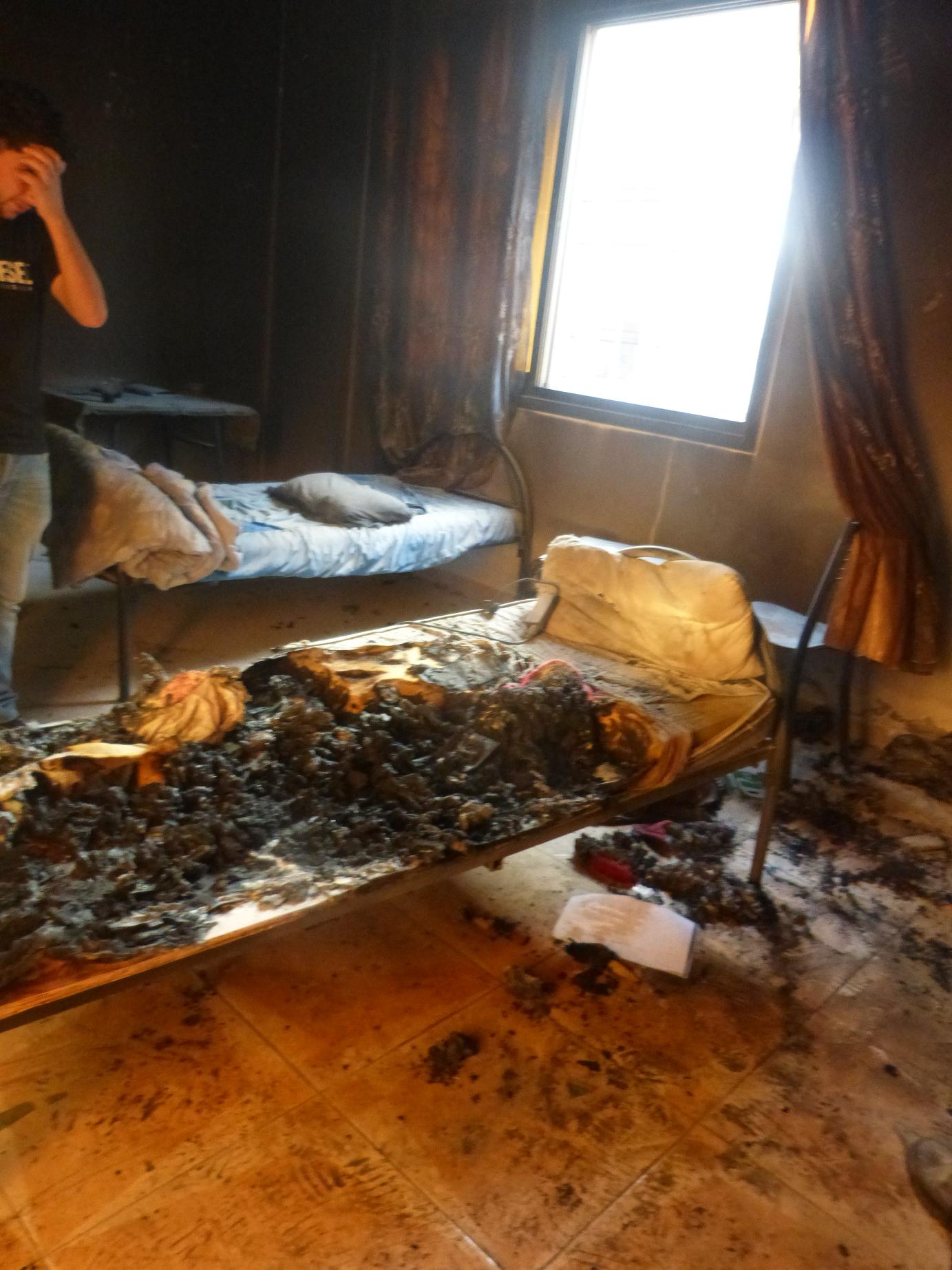Category: Reports
-
The weekly demonstration continue in Ni’lin while harassment and night raids increase
13th July 2013 | International Solidarity Movement, Ramallah Team | Ni’lin, Occupied Palestine On Friday, 13 July, around 30 people gathered for the Friday demonstration in the outskirts of Ni’lin village. After finishing prayers Palestinians marched towards the Apartheid Wall that has annexed the land of the village, along with internationals. From the beginning of…
-
Settlers from illegal colony of Itamar destroy 1,500 Palestinian olive trees
12th July 2013 | International Solidarity Movement, Nablus Team | Awarta, Occupied Palestine On the morning of Thursday 11th July, villagers from Awarta found that 1,500 of their olive trees had been cut down over the last month by settlers from the illegal settlement of Itamar. When they attempted to highlight this crime with media…
-
Student apartments burnt during Israeli military invasion of Nablus
12th July 2013 | International Solidarity Movement, Nablus Team | Nablus, Occupied Palestine In the early hours of Wednesday the 10th of July, the Israeli army, arriving from the military camp near the settlement of Qedumim (8km west of Nablus) raided the Nablus neighbourhood of Al Junied, near the new Al Najjar university campus. The…


